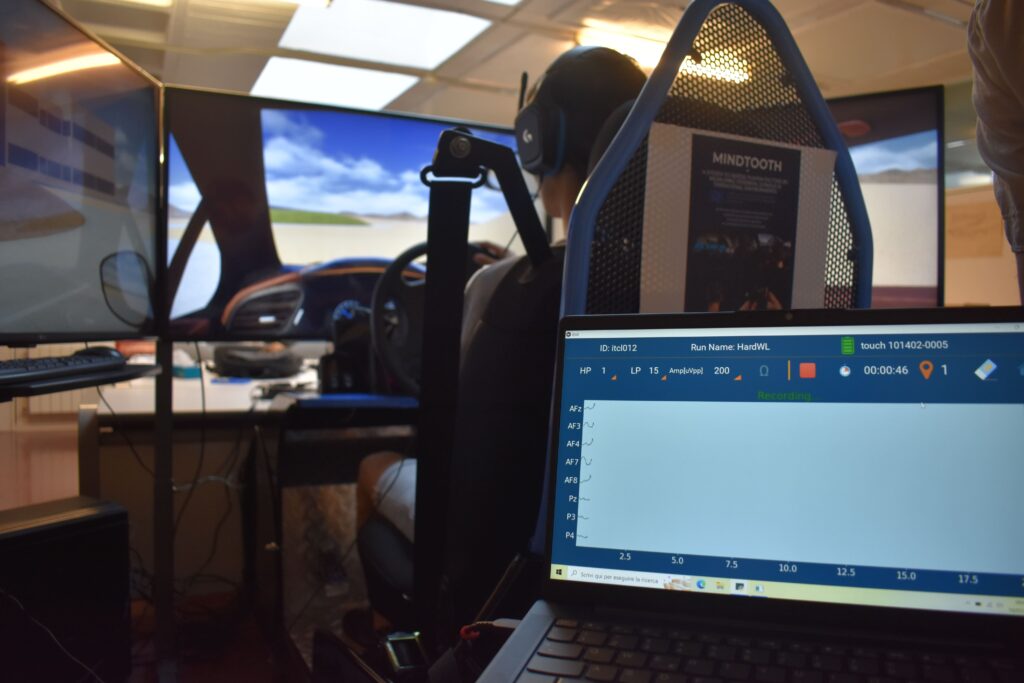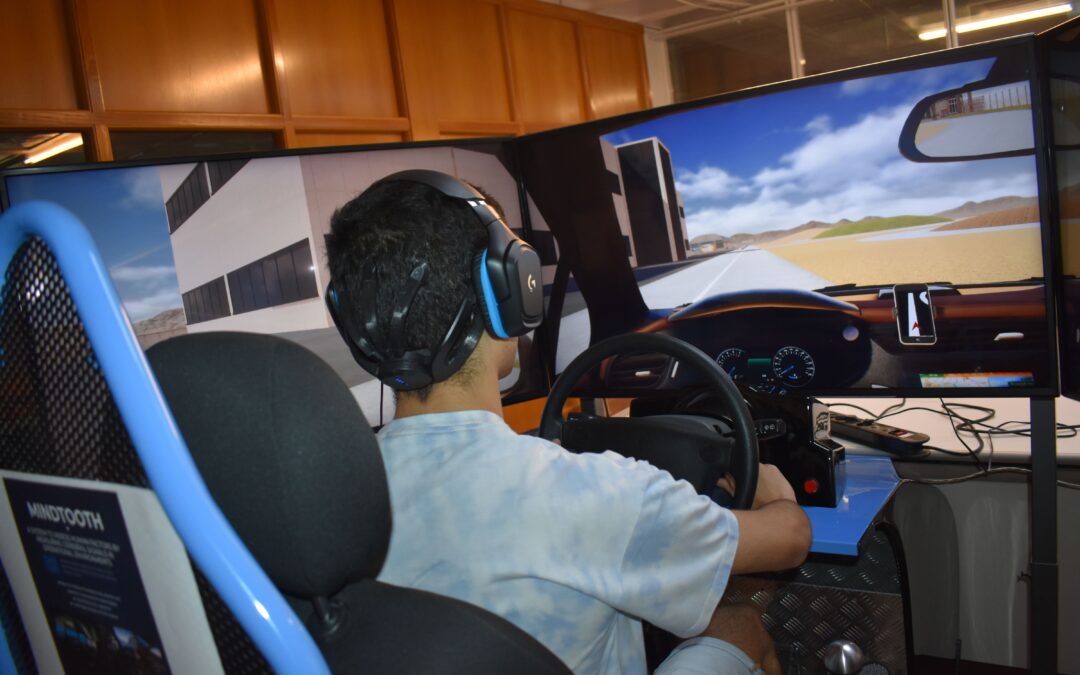This May, the Polytechnic School of the University of Burgos is hosting the tests of the European Mindtooth project, which aims to measure the psychophysiological state of users at the wheel by achieving a truly “intelligent” and “cooperative” interaction between human actors (car drivers, aeroplane pilots, factory workers) and the devices around them through the use of brain signals.
In the next few days, around thirty volunteers will go through the simulator installed in the school belonging to the University of Burgos to carry out the pilot tests which will produce the results that will endorse the results of a project financed by the European Union in the Fast Track to Innovation (FTI) programme, in which ITCL Centro Tecnológico participates together with the University of La Sapienza, IBM and Brain Signs.
In the last few weeks, volunteers have been sought to test the device and learn about the results associated with the project. The tests last one hour and are carried out in collaboration with professionals from ITCL and the University of Sapienza, who control the parameters and results.

Knowing the state at the wheel
In the tests carried out, the user performs different activities at the wheel to find out the workload, fatigue, emotional state, tiredness or stress associated with each of them.
The project aims to develop the Mindtooth system that provides real-time indicators of cognitive or emotional states by processing brain signals, providing affordable cross-application indicators based on scientifically proven algorithms, using a portable, comfortable and easy-to-fit EEG headset equipped with gel-free sensors.
Mindtooth is expected to be integrated into the next generation of intelligent control interfaces and dashboards to provide added services to users such as drivers, pilots and general industrial workers, as well as during their training and assessment protocols.


